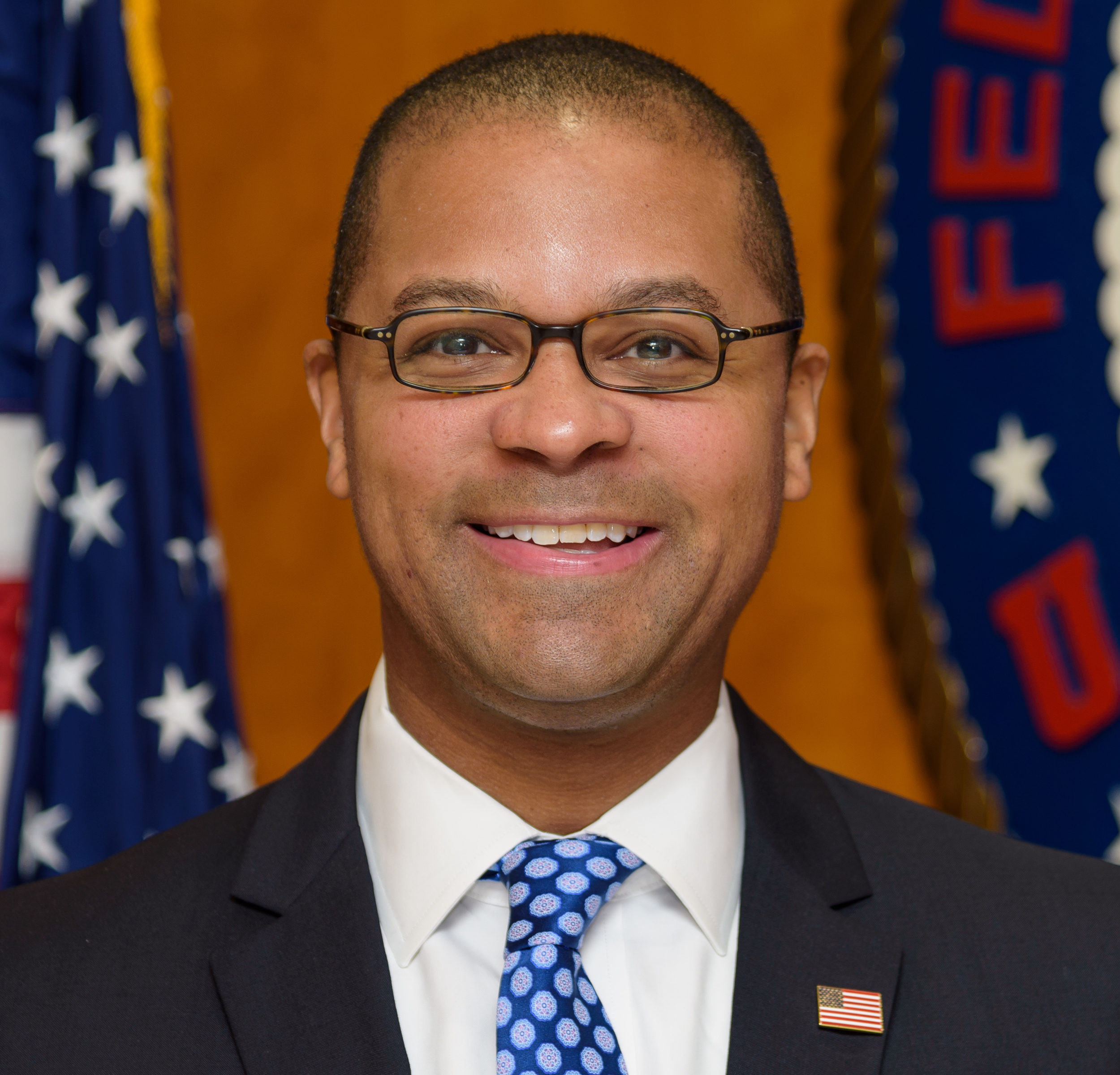Starks to NTIA: Bring on Sec. 230 Petition
The smarter way to stay on top of the multichannel video marketplace. Sign up below.
You are now subscribed
Your newsletter sign-up was successful

Democratic FCC Commissioner Geoffrey Starks is clearly no fan of President Trump's Executive Order asking the FCC to regulate online content, but that doesn't mean the FCC should not act expeditiously on a petition to that effect once it is filed next month, preferably by denying it.
Starks said the order "raises a threatening new regulatory regime upon internet services with no credible legal support," and said the President is looking to "work the refs, and more than that, get them to swallow the whistle."
Related: Trump Threatens to Shut Down Social Media
President Trump, targeting what he has long said was social media's attempt to suppress conservative speech, last month issued his "Executive Order on Preventing Online Censorship," which mandates that Commerce's National Telecommunications & Information Administration file a petition within 60 days asking the FCC to come up with a framework for exempting censorship of political speech from that so-called Sec. 230 exemption, and in the process "make rules clarifying the relationship between Section 230’s broad liability shield and its protections for “good faith” blocking and removal of user content and defining conditions when an ICS provider’s moderation is not “taken in good faith," as Starks puts it.
In remarks on an ITIF Foundation Webinar on "The FCC's Role in Reforming Sec. 230," Starks suggested the FCC might be better focusing on closing the digital divide during the pandemic, but the Sec. 230 order and its "novel approach" had been laid at its doorstep.
Related: GOP Senators Introduce Sec. 230-Targeted Bill
"None of the Commission’s rules require that we start a rulemaking proceeding simply because NTIA asks us to. This decision is ours alone, and there are good reasons for the FCC to stay out of this debate," he said.
The smarter way to stay on top of the multichannel video marketplace. Sign up below.
Starks said the President's order gets at least one thing right: "The President cannot instruct the FCC to do this—or anything."
NTIA has to ask the FCC to regulate because it is an independent agency not subject to Executive Orders, though since those orders are issued by the President of the same party, historically FCC chairs have tried to honor the spirit of such orders, as when the Democratic FCC adopted cost-benefit analysis of regs after President Obama ordered that approach for non-independent agencies.
Related: Survey Says Public Wants Online Freedom AND Regulation
Starks said the FCC will need to act quickly when the petition is filed, suggesting that the order was intended to influence the election. "Whatever you think of its merits, the Executive Order represents the President’s clear intention to influence how social media companies operate at a time when their decisions are heavily implicated in his own electoral future."
"The President gave NTIA until the end of July to send us the Petition. If we take the usual few weeks to process it and seek comment in mid-August, we could easily end up with comment deadlines in early October. From there, the schedule is exclusively at the Chairman’s discretion—and he may deem it best that the Commission wait months before taking any additional next steps in the rulemaking process. With a timeline initiated so late and subject to such discretion, it seems inevitable that the dark cloud over online free speech the Executive Order represents will cast its lingering shadow over our elections," he said.
He said that such a shadow could make social media companies less willing to flag misinformation.
The President's order was prompted, at least in part, by Twitter calling a fact check on his tweet about absentee ballots being voter fraud, and labeling a tweet about shooting protesters a glorification of violence. Twitter also added a link before the tweet would display.
Starks said NTIA should try to get the petition in even earlier--say, by the end of this month, when he expects the FCC to be able to reject it on the threshold question of legal authority, which would allow the FCC to quickly close the book and move on from what he calls an "unfortunate detour."
He said if the FCC does decide to go down that road--there is some support from the Republican side of the commission--he said there will be some tough questions for supporters of the Restoring Internet Freedom order deregulating ISPs.
Related: GOP Senators Seek FCC Input on Sec. 230
"I want to be clear that I think content discrimination by ISPs raises questions that are wholly inapplicable to social media companies," he said. "But for supporters of the Restoring Internet Freedom Order, there will be difficult questions about how to square their previous reliance on Section 230(b) policy statements as a justification for divesting the Commission of authority with the President’s approach. They will also need to consider that ISPs are also 'interactive computer services' subject to Section 230 and the President’s proposed rules. Those pieces don’t fit neatly together. You can’t pretend to have a light-touch regulatory framework when you’re regulating content with a heavy hand."
Related: Trump Social Media Order Gets Mixed Review
Starks said he has his own issues with Sec. 230 when it has been used to shield criminal behavior like stalking and harassment. "These are valid concerns that deserve robust examination and debate." But he said that is Congress' issue, not the five-member commission the President is targeting because he might get a more expedient outcome.
Contributing editor John Eggerton has been an editor and/or writer on media regulation, legislation and policy for over four decades, including covering the FCC, FTC, Congress, the major media trade associations, and the federal courts. In addition to Multichannel News and Broadcasting + Cable, his work has appeared in Radio World, TV Technology, TV Fax, This Week in Consumer Electronics, Variety and the Encyclopedia Britannica.

